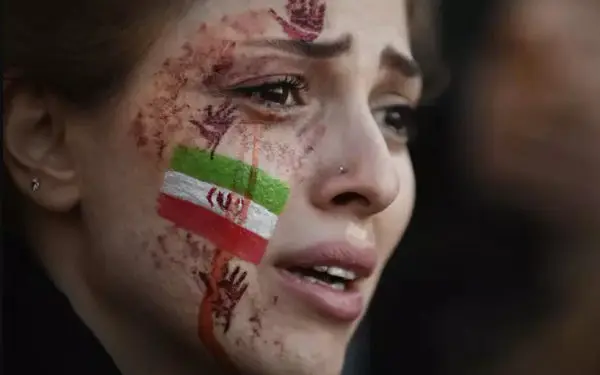Courts in and around the Iranian capital have jailed 400 people on charges related to recent protests, for terms of up to 10 years, The Guardian writes.
Ali Alghasi-Mehr, the judiciary chief for Tehran province, said judges had handed down the rulings to “rioters” – a term officials use for all demonstrators who defy Iran’s hardline theocratic rule.
In comments quoted by the judiciary’s Mizan Online website, Alghasi-Mehr said: “One hundred and sixty people were sentenced to between five and 10 years in prison, 80 people to two to five years and 160 people to up to two years.”
Tehran is one of 31 provinces in the country, meaning the total number of jail sentences is likely to be several times higher. UN human rights experts estimate that more than 14,000 people have been arrested across the country since mid-September.
The movement was sparked by the death of Mahsa Amini, a Kurdish-Iranian woman who was allegedly beaten into a coma by morality police for wearing her headscarf the wrong way. But it has since morphed into the biggest civil uprising for years, with Iranians expressing their rage over decades of oppression, misogyny in the name of religion, and international isolation.
Authorities have responded with force, firing at and beating protesters. The UN office of the high commissioner for human rights has said more than 300 people have been killed in the crackdown, including at least 40 children.
In an attempt to prevent the rallies from spreading, Iran has imposed internet blackouts. More recently, and to dissuade dissent further, it has publicised harsh sentences handed out by its courts, including 11 death sentences, two of which have been carried out.
On Monday, authorities hanged a 23-year-old man from a construction crane after a rushed and secretive trial. Majidreza Rahnavard was accused of killing two pro-regime militia fighters. He was executed in public, his hands and feet bound and a black bag put over his head.
Diana Eltahawy, Amnesty International’s deputy director for the Middle East and north Africa, said the killing showed that Iran’s judiciary was “a tool of repression sending individuals to the gallows to spread fear and exacting revenge on protesters daring to stand up to the status quo”.
Last Thursday, authorities hanged Mohsen Shekari, who had been convicted of injuring a security guard with a knife.
Fifpro, the international footballers’ union, said on Monday it was “shocked and sickened” by reports that a professional footballer, Amir Nasr-Azadani, faced execution “after campaigning for women’s rights and basic freedom in his country”.
Nasr-Azadani is one of six people Amnesty said could be awaiting or undergoing trial on charges carrying the death penalty. Fifpro said: “We stand in solidarity with Amir and call for the immediate removal of his punishment.”
















